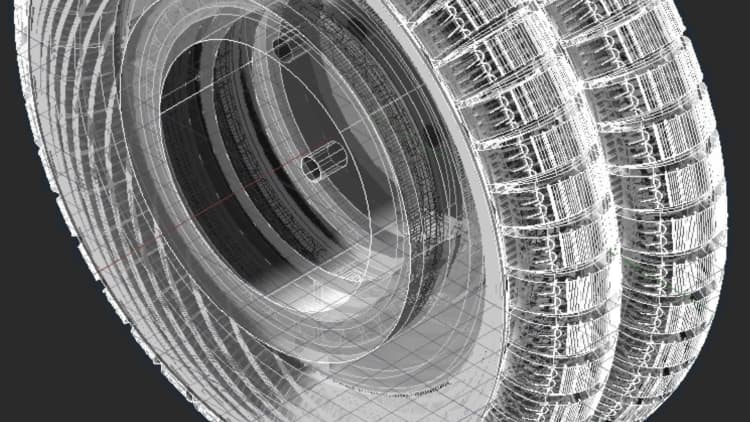Sub-par parallel parkers rejoice! A Canadian truck driver may have solved your problems.
New technology debuted in a video by London, Ontario-based commercial driver William Liddiard shows his Toyota Echo gliding sideways thanks to omnidirectional tires that can roll inward upon themselves. An external motor powered by the car's battery allows sideways travel at about 1 mile per hour at the flip of a switch.
It's the result of eight years spent tinkering in a barn and roughly $80,000 Canadian dollars (U.S. $61,586) spent on combined research and patent costs since thinking of tackling the zero-point glide.
"I was watching somebody backing up a utility trailer," Liddiard told CNBC. "And they were having a hard time doing it ... so that's how initially I came up with the idea of redesigning the wheel sideways."
To be fair, Liddiard isn't the first person to perfect the omnidirectional wheel. That much became clear in 2012 after he discovered Honda had earlier submitted a similar patent for technology showcased in a popular OkGo music video, which forced him to improve his design in a second version.
Liddiard said his second installment, which is pending patent approval, offers a higher weight limit and a total of 24,000 pounds of torque directed to the tires at a fraction of the price.
Drivers looking to have a similar system installed in their cars will have to wait, however, as Liddiard looks to move past the prototype phase to scale his new business.
"I would love to see a major corporation pick it up and run with it," he said. "They could bring it to market more effectively and quicker than I could, but I'm not going to stop. I'll keep moving forward with it."
Liddiard estimated the cost of his system to come in at around $2,000 Canadian dollars (U.S. $1,541) per tire, adding that the price could change depending on the vehicle.



